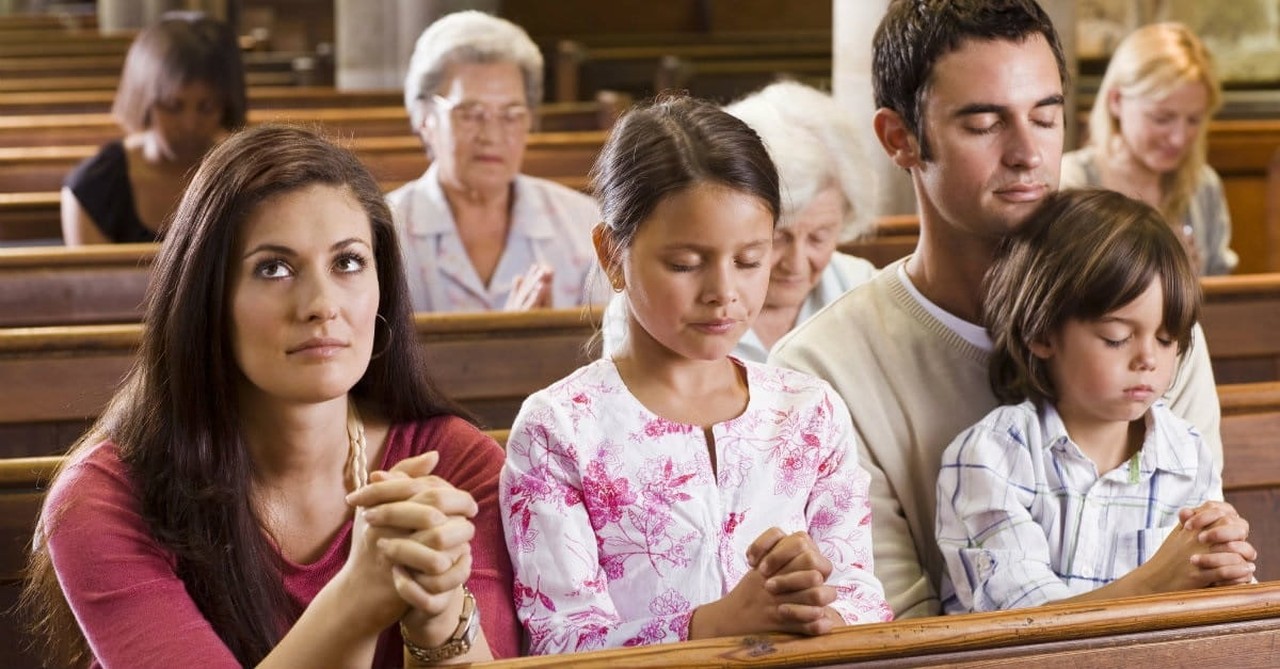7 Reasons Prayer Meetings Fail

It wasn’t too long ago that most churches included a prayer meeting as a part of their weekly rhythm. Maybe this was Sunday night or Wednesday evening or early one morning before the sun came up.
While there is nothing in the Bible that says a church must have a stated weekly prayer meeting, there is plenty in the Bible that says Christians should regularly be praying together. So whether the “prayer meeting” is on the calendar each week or takes place every day across small groups, staff meetings, elder meetings, and other corporate gatherings, there ought to be many recurring opportunities for church members to pray with one another.
And yet, most of us struggle to pray. Often the corporate prayer meeting feels even harder than our private devotional time.
So why do prayer meetings fail? Let me suggest seven reasons.
Photo Credit: Thinkstock
1. We hardly take time to pray.

1. We hardly take time to pray.
SLIDE 1 OF 7
I’ve been to hour-long “prayer meetings” where four hymns are sung, a 25-minute devotional is given, people share prayer requests at length, and the people pray together for barely 10 minutes. I’m sure we’ve all seen small groups that say they are devoted to prayer and then rush through a closing prayer in 30 seconds at the end of a busy evening. Even when we mean to be praying, we can spend a lot of time ramping up for prayer, giving instruction for prayer, and setting the stage for prayer, when many of those things could be done with adroit leadership during the prayer time itself.
Photo Credit: Thinkstock
2. The individual prayers are too long.

2. The individual prayers are too long.
SLIDE 2 OF 7
If you are in a group with five other amazing prayer warriors, you may be able to get away with one long prayer after another. But most Christians struggle with long prayers—they struggle to pray long prayers, and they struggle to keep alert during long prayers. Prayer meetings get bogged down when everyone feels like they need to prepare a three-minute soliloquy. That’s why I’m always telling people in group prayer, “Don’t be afraid to pray one or two sentences.” Less is often more.
Photo Credit: Thinkstock
3. Too few people participate.

3. Too few people participate.
SLIDE 3 OF 7
When people pray long prayers, fewer people pray. This is not only a matter of simple math; it’s part of the human psyche. “If participation at the prayer meeting means I need to pray as long or as well as Mrs. McGillicudy,” we reason, “then I better just keep my mouth shut.” Keep things moving. Keep the prayers short and sweet. People will stay awake, and more people will pray.
Photo Credit: Thinkstock
4. No one has prepared to lead.

4. No one has prepared to lead.
SLIDE 4 OF 7
In my experience, this is the biggest practical deterrent to corporate prayer. True, it’s possible to have a dynamic prayer meeting without any planning on at all. History is full of examples of Christians who got together on the spur of the moment and rattled the gates of hell with their prayers. But in most church at most times and in most places, we need help to pray well. That means someone has thought through what we are praying about. Someone is ready to steer the group through different topics. Someone is ready to call out a new topic or take folks to a new passage. It’s amazing how twenty minutes of structure-less praying can feel like forever, while an hour of carefully planned prayer can go by in a flash.
Photo Credit: Thinkstock
5. There is no variety in prayer.

5. There is no variety in prayer.
SLIDE 5 OF 7
Too many prayer meetings spend half the time in taking prayer requests and then half the time in unstructured prayer for those requests. There is nothing wrong with that design. I’ve used it many times. But prayer will become dull and dreary if this is all we do. We should be using Scripture, songs, corporate readings, prayer books, old liturgies, and other forms in our prayer. Mix it up. Learn from the saints who have gone before us.
Photo Credit: Thinkstock
6. We don’t stick to the allotted time.

6. We don’t stick to the allotted time.
SLIDE 6 OF 7
Again, I’m sure some Christians love to pray for hours and hours without structure or without an end in sight. And yet, if we’re honest, that’s not where most of us are, especially in Western culture. When I introduced a 7 a.m. prayer meeting years ago, I laid down clear ground rules. We would start promptly at 7. No one would bring food or coffee. The leader would take no more than five minutes to introduce our prayer time. Then we would pray and end at 7:30 on the button. Does this work in every culture? Maybe not. But it helped our folks know what to expect and know that they could get home to the kids or get to work on time.
Photo Credit: Unsplash
7. We forget that we are praying.

7. We forget that we are praying.
SLIDE 7 OF 7
It happens to me all the time. I’m listening to prayers, or praying myself, and suddenly realize, “We are speaking to the God of the universe.” If we’re not careful, corporate prayer become an exercise in giving short religious speeches. We forget that we are talking to someone—and not just to someone, but to God Almighty, our holy and loving heavenly Father. God loves it when we pray, and he listens when we pray. The Spirit helps us. The Son intercedes for us. Don’t forget what you are doing when you pray.
Kevin DeYoung (MDiv, Gordon-Conwell Theological Seminary) is senior pastor of Christ Covenant Church in Matthews, North Carolina, board chairman The Gospel Coalition, assistant professor of systematic theology at Reformed Theological Seminary (Charlotte), and a PhD candidate at the University of Leicester. He has authored numerous books, including Just Do Something. Kevin and his wife, Trisha, have seven children.
This article originally appeard on TheGospelCoalition.org. Used with permission.
Photo Credit: Thinkstock
Originally published March 27, 2018.









